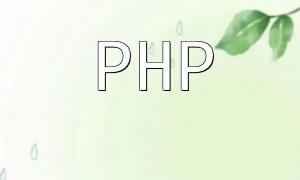DedeCMS (also known as DedeCMS) is one of the most widely used website building tools in China, and its security has always been a key concern for developers and website administrators. With the increasing importance of cybersecurity, DedeCMS provides several built-in security features to help secure websites. This article will introduce the security features of DedeCMS, as well as the security challenges it faces, and provide some practical solutions.
DedeCMS offers a variety of built-in security features to assist website administrators in strengthening their site's security.
Although DedeCMS offers several security advantages, it still faces some common online threats. Below are some of the most common security issues and their solutions.
SQL injection is a common attack where attackers inject malicious SQL queries through input fields to retrieve or alter information in the database. The key to preventing SQL injection is to validate user input properly.
// Example code: Prevent SQL Injection$id$sqlXSS attacks involve injecting malicious scripts into a website, which can steal user data or hijack sessions. To prevent XSS attacks, it is important to filter or escape user input.
// Example code: Prevent XSS Attacks$contentFile upload vulnerabilities allow attackers to upload malicious files to a website. To prevent these attacks, you should limit the types and sizes of files that can be uploaded, and perform checks on the files during the upload process.
// Example code: Limit file upload types and sizesif }While DedeCMS offers several built-in security features that help defend against common cyberattacks, it still faces ongoing security challenges. By understanding these challenges and implementing the appropriate security measures, website administrators can significantly enhance the security of their DedeCMS-powered sites.









